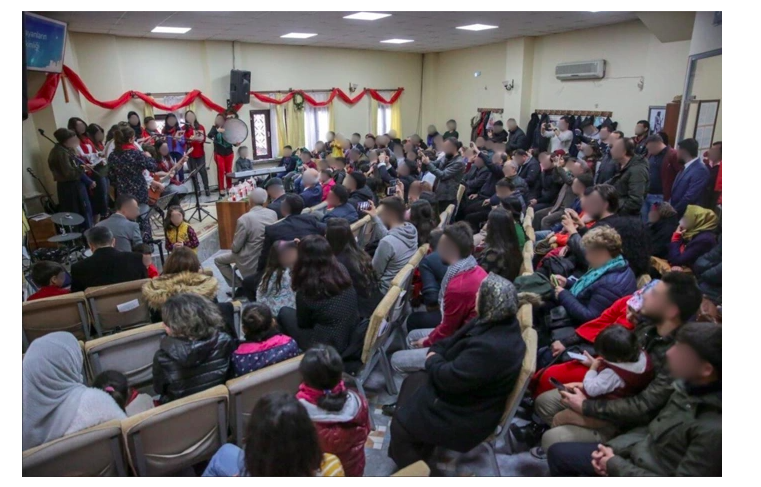Turkish Authorities Crack Down on Christianity; Deny Church Land for Worship Space
Turkish authorities have recently denied a Protestant church in the city of Antalya the right to acquire land for a worship space, sparking concerns over religious freedom in the country. The decision has been criticized by religious leaders and human rights advocates, who view it as part of a broader pattern of discrimination against Christian communities in Turkey.
The Antalya Protestant Church, which has been seeking a permanent place of worship for years, had applied for permission to use a plot of land. However, local authorities rejected the application, citing zoning regulations and other bureaucratic hurdles. This denial has left the congregation without a dedicated space for their religious activities, forcing them to continue meeting in rented facilities.
According to a report by The Christian Post, the church’s pastor, Ramazan Arkan, expressed his disappointment over the decision. “We have been struggling for years to find a permanent place for our congregation,” he said. “This latest rejection is a significant setback for us and highlights the challenges faced by Christians in Turkey.”
The Turkish government, under the leadership of President Recep Tayyip Erdoğan, has faced ongoing criticism for its treatment of religious minorities. Despite constitutional guarantees of religious freedom, Christians and other non-Muslim groups often encounter obstacles when trying to establish or maintain places of worship. This latest incident in Antalya underscores the broader issues of religious discrimination and the limitations placed on minority faiths in Turkey.
The denial of land to the Antalya Protestant Church comes at a time when Turkey’s human rights record is under increasing scrutiny. International organizations, including the United States Commission on International Religious Freedom (USCIRF), have repeatedly raised concerns about the country’s treatment of religious minorities. The USCIRF’s 2023 annual report highlighted several instances where the Turkish government failed to protect the rights of Christians and other minority groups.
“The situation for religious minorities in Turkey remains precarious,” said a USCIRF representative. “The government’s refusal to grant land for a church in Antalya is just one example of the systemic challenges faced by Christians in the country. Such actions not only violate international human rights standards but also Turkey’s own commitments to religious freedom.”
The conservative perspective emphasizes the need for Turkey to uphold its constitutional promises and international obligations. Religious freedom is a fundamental human right, and the consistent denial of this right to Christians in Turkey is deeply concerning. The Erdoğan administration’s actions raise questions about the country’s commitment to pluralism and tolerance.
Critics argue that the Turkish government uses bureaucratic measures as a tool to suppress minority religions. By citing zoning laws and other regulations, authorities can effectively prevent the establishment of new churches without overtly violating religious freedom. This subtle form of discrimination allows the government to maintain a facade of compliance with human rights standards while continuing to marginalize Christian communities.
In response to the denial, international Christian organizations have called for greater pressure on Turkey to respect religious freedom. Advocacy groups are urging Western governments and international bodies to hold Turkey accountable for its treatment of religious minorities. They argue that diplomatic and economic pressure could compel the Erdoğan administration to change its policies and ensure equal rights for all religious groups.
Meanwhile, the Antalya Protestant Church continues to seek a solution. Pastor Arkan remains hopeful but acknowledges the difficulties ahead. “We will not give up our search for a permanent place of worship,” he stated. “Our faith and community are strong, and we will continue to stand together despite these challenges.”
The situation in Antalya reflects broader concerns about religious freedom in Turkey. As the international community watches closely, the actions of Turkish authorities will be scrutinized for their compliance with human rights norms. The conservative viewpoint stresses that true democracy and respect for human rights cannot be achieved without genuine religious freedom for all citizens.
